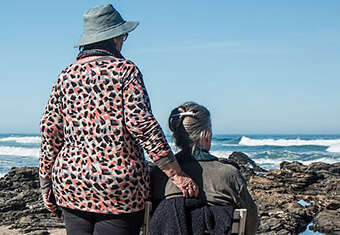It is good practice for people to set up a legal safeguard so that, if they lose mental capacity in future, a trusted person can look after their affairs.
In England and Wales the Lasting Power of Attorney (LPA) was introduced in 2007, replacing the older Enduring Power of Attorney (EPA), however EPAs that were signed before 1 October 2007 can still be used.
If you have been appointed as an attorney under an EPA, you will be responsible for helping the person, known as the donor, to make decisions in relation to their:
- Money and bills,
- Bank and building society accounts,
- Property and investments, and
- Pensions and benefits.
Acting as an attorney is a significant responsibility, and it is important to understand your duties and be familiar with the principles to apply when making decisions.
When can you act?
You can act for the donor straightaway using an unregistered EPA, provided that they still have mental capacity. If the donor has lost, or is losing, capacity to make financial decisions, you must register the EPA with the Office of the Public Guardian before you can continue to act.
While the donor has mental capacity you should act at their direction and with their consent.
The banks, building societies and organisations where the donor holds funds will require a certified copy of the EPA, and identification from you, before they will allow you to deal with an account.
How do you know if the donor lacks capacity?
This is a difficult question because capacity can vary from day to day. The law states that the donor lacks capacity if they are unable to make a decision due to an impairment with the functioning of their mind which means that they cannot understand, retain or weigh the necessary information.
The ability to make decisions is both time and issue specific. The donor may have capacity to make a simple decision about paying a bill but not a complex investment decision.
You should not consider the donor to have lost capacity just because you disagree with a decision they have made.
What principles should you follow?
You should assume that the donor is capable of making a decision unless shown otherwise and you should take all practical steps to help the donor make the decision themselves. All decisions must be made in the donor’s best interests and in a way that least restricts their rights and freedoms.
You should take account of any past wishes and feelings of which you are aware. Make sure you keep records of how you reached your decisions, in case you are challenged in the future.
How should you make investment decisions?
You will need to obtain and follow proper advice, ideally from a qualified financial advisor. One of your duties is to review the suitability and diversity of their investments. It is essential that you keep the donor’s assets separate from your own.
What else should you bear in mind?
Unless you are a professional attorney, you will not be paid but you can recover reasonable expenses incurred when carrying out your duties.
Take advice before making gifts or loans from the donor’s assets, or selling assets below their true value.
Finally, you will need to keep accounts of the donor’s assets, income and spending. The Office of the Public Guardian and the Court of Protection can ask to check these at any time.
What about other parts of the UK?
This article applies to English and Welsh EPAs. Different rules apply in Scotland and Northern Ireland.
Related articles
Stephen Horscroft TEP is a Partner in the Private Client Advisory Group at Cripps, Tunbridge Wells, England
 UK
UK  Canada
Canada









